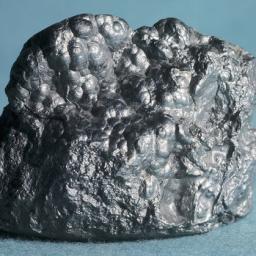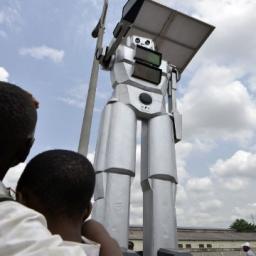Thank you for all of your comments and constructive criticisms from
last week's poll. Input like this helps me prioritize the implementation of features that are the most important to you. Seems I underestimated some, like search, and will adjust my schedule accordingly.
Updates for this week:
- Search Page - Still a bit raw, but have to start somewhere, right?
- More Editors - We now have three volunteer editors. If you are interested in helping in this department, feel free to contact me. Or you can always submit more stories to help us out.
- Mailing List - Mainly for staff discussions, but anyone is free to participate. Click the checkbox on your settings page to subscribe to the list. A pretty HTML archive interface will be added soon.
- Titles - The HTML title on most pages should now be meaningful
- Forgot Password - You can now reset a forgotten password by answering a standard email challenge

Lithium Ion batteries are a big deal: they are used in smartphones, laptops, and many other electronic gadgets, as well has electric and hybrid vehicles. But they're a bigger deal when hybrid vehicle producer Tesla gets involved. The sheer size of electric vehicle batteries makes Tesla potentially one of the largest consumers of the world's natural graphite production; some analysts estimate that the opening of the Tesla gigafactory will double the world's demand for graphite.
But that graphite might soon be in short supply. Bloomberg recently reported that the material commonly used for the anode of those batteries -
graphite - will soon be in short supply because of environmental issues. Graphite mining and processing has produced substantial air and water pollution in China, leading authorities to close dozens of mines and processing plants in Shandong province. (China currently produces the
vast majority of the world's supply of natural graphite; other countries, including Australia and Canada, could potentially ramp up to take up a portion of the slack).
But building Li-Ion batteries for Tesla is causing the politicians to sit up and take notice. At present, four southwestern American states vie to be selected as the
site of Tesla Motor's announced 'Gigafactory' , a 1000-acre factory for lithium-ion batteries projected to cost $5 billion and support 6500 local jobs.
Tesla CEO
Elon Musk quickly tweeted that the Bloomberg story was 'beyond ridiculous' and promised to post an environmental impact blog. After a week, the proposed statement has still not been posted.
The first expansion pack of the popular Blizzard game
Diablo 3 will soon go live. The expansion introduces a new character class, the Crusader, adds new areas to explore in Act V, and raises the level cap to 70.
Release schedule for the Americas:
- 9:00 p.m. PDT on March 24
- 10:00 p.m. MDT on March 24
- 11:00 p.m. CDT on March 24
- 12:00 a.m. EDT on March 25
Release times for other areas are
listed here.
Germany's Angela Merkel isn't the only one riled over recent revelations of American surveillance and data gathering. Turns out
The American government conducted a major intelligence offensive against China , with targets including the Chinese government and networking company Huawei.
Edward Snowden is the source of the revelations, as reported to German daily Spiegel. Among the American intelligence service's targets were former Chinese President Hu Jintao, the Chinese Trade Ministry, banks, as well as telecommunications companies. But the NSA made a special effort to target Huawei.
According to a top secret NSA presentation, NSA workers not only succeeded in accessing the email archive, but also the secret source code of individual Huwaei products."
There's more than one way to compute a secure hash, from MD5 to SHA-3 to SHA-1 and beyond. So who cares about yet another: Blake2?
There are a couple of reasons you might be interested in checking out Blake2: It was rated best hash function in the SHA-3 competition, is faster than MD5, and cryptographers find that it's similar to the well-regarded SHA-2 algorithm in ways that matter.
Says developer Zooko Wilcox-O'Hearn:
Jean-Philippe Aumasson, Samuel Neves, Christian Winnerlein, and I decided that what the world needed was not just a secure hash function that was faster than Keccak, but one that was faster than MD5! This is because MD5 (and SHA-1) continue to be very widely used, even in new applications, even though MD5 and SHA-1 are unsafe for many uses. We hypothesized that offering engineers a hash function that was both faster and more secure than their beloved MD5 or SHA-1 might be more effective than haranguing them to upgrade to an alternative that is more secure but slower.
Have a look for yourself at Wilcox-O'Hearn's page.
We're not used to thinking of Africa as a hotbed of technological innovation, but times change and Africans need to find solutions to problems too. But
Kinshasa's streetlight street light robots show the mirth the Congolese are able to apply to technical challenges.
Kinshasa,
the capital of the Democratic Republic of the Congo , has legendarily bad traffic problems. But the government has installed at one particularly bad intersection, two humanoid street light figures. They stand 8 foot tall, made of stainless steel and aluminium, and powered by solar panel. Featuring green and red lights, Kinshasa's robot cops are designed to merge some of the functions of human officers and traffic lights. The anthropomorphic robots can raise or bend their arms to stop passing vehicles or let others pass, and are also programmed to speak, indicating to pedestrians when they can cross the road. The street light robots are equipped with rotating chests and surveillance cameras that record the flow of vehicles.
Locally designed and built, these two robots are just the beginning: more are planned.
The automatic analysis of sentiment in text is fast changing the way we interpret and interact with words. On Twitter, for example, researchers have begun to gauge the mood of entire nations by analysing the emotional content of the tweets people generate.
In the same way, other researchers have started to measure the emotional temperature of novels by counting the density of words associated with the eight basic emotions of anticipation, anger, joy, fear, disgust, sadness, surprise and trust.
The next step,
obviously was to write an algorithm that measures that emotional temperature throughout full length novels, and
generate a musical soundtrack to accompany the text. Interesting research, or pointless? Time will tell, but energy and money is increasingly being used to judge moods and allow software or equipment to react accordingly. The true value of this research might not become apparent until sometime in the future, even if it is only used so your phone can sing you a soothing song after you receive a nasty email from your boss.
Some researchers at Cornell University have been studying the way fruit flies respond to gusty winds. They've found that the wing neurons are able to react without input from the brain to more quickly respond to changing wind conditions. Reported by the
New York Times : "Whatever the fly neurons are doing, they have the right stuff. The wings of fruit flies beat about 250 times a second. Disturb a fly's flight in an extreme way, Dr. Cohen said, and 'within three wing beats that sucker has recovered completely.'"
The research papers can be found
here and
here .
musl, a lightweight alternative to the GNU Clibrary , has just had its version 1.0 released after three hard years of development. musl is, according to its developers:
a lightweight, fast, simple, MIT-licensed, correctness-oriented alternative to the GNU C library (glibc), uClibc, or Android's Bionic. At this point musl provides all mandatory C99 and POSIX interfaces (plus a lot of widely-used extensions), and well over 5000 packages are known to build successfully against musl.
musl is indeed lightweight, and
a chart showing how musl compares to uClibc, dietlibc, and eglibc shows musl compares favorably and often outshines other small C libraries. Several options are available for trying musl. Compiler toolchains are available from the musl-cross project, and several new musl-based Linux distributions are already available (Sabotage and Snowflake, among others).
Some well-established distributions including OpenWRT and Gentoo are in the process of adding musl-based variants, and others (Aboriginal, Alpine, Bedrock, Dragora) are adopting musl as their default libc.


